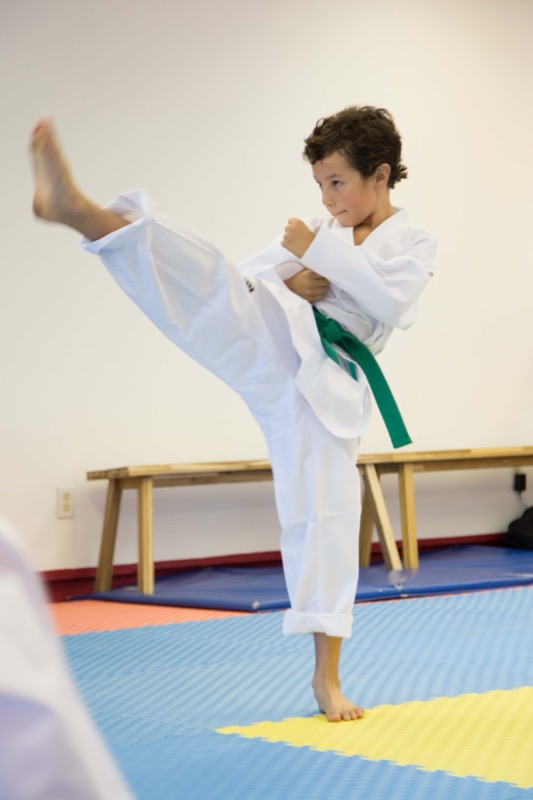
Every May, Mental Health Awareness Month highlights the importance of nurturing mental well-being, especially for children. As kids navigate academic, social, and personal challenges, providing them with effective tools to manage stress and build emotional resilience becomes essential. While many parents look to traditional methods like therapy or mindfulness exercises, an increasingly popular and impactful approach is Taekwondo. This Korean martial art supports emotional well-being through a blend of physical activity, discipline, and community engagement, offering kids a holistic path to mental and emotional health.
Understanding the Mental Health Challenges Kids Face Today
Children today are growing up in a world vastly different from previous generations. Increased access to technology, social media, and academic pressures can create a challenging environment for young minds. Common stressors include:
- Academic Pressure: Competitive educational systems and high expectations can leave children feeling overwhelmed.
- Social Dynamics: Bullying, peer pressure, and navigating friendships can cause stress and anxiety.
- Digital Overload: Overuse of technology often leads to disrupted sleep, information overload, and social comparison.
- Family Changes: Events like divorce, relocation, or other family transitions can destabilize a child’s sense of security.
These challenges underscore the need for activities that not only promote physical fitness but also address emotional resilience. Taekwondo provides an avenue for children to manage these stressors effectively.
What is Taekwondo?
Taekwondo is a martial art rooted in Korean tradition, emphasizing dynamic kicking techniques, discipline, and philosophical principles. Its name, Tae (foot), Kwon (fist), and Do (way), signifies “the way of the foot and the fist.” While it is renowned for its physical techniques, Taekwondo also incorporates values such as courtesy, integrity, perseverance, self-control, and an indomitable spirit. These principles play a crucial role in supporting emotional well-being.
How Taekwondo Supports Emotional Well-Being
Taekwondo’s impact extends far beyond the physical; it nurtures the mind and spirit, creating a foundation for emotional resilience. Here are the key ways it supports children’s mental health:
1. Building Self-Esteem and Confidence
Confidence is essential for emotional well-being, and Taekwondo excels at fostering self-esteem. Children experience a sense of accomplishment as they master techniques and advance through the belt system. Each new rank achieved reinforces their hard work and persistence.
Taekwondo also cultivates a supportive environment where students respect one another, fostering a sense of belonging. As children witness their growth and improvement, their confidence builds, equipping them with the courage to face challenges in all areas of life.
2. Stress Relief and Emotional Regulation
Physical activity is a proven stress reliever, and Taekwondo’s high-energy movements help release endorphins, which elevate mood and reduce stress. The structured practice encourages mindfulness as children focus on their forms, kicks, and techniques.
Taekwondo also teaches emotional regulation. Controlled breathing and mindfulness techniques help children manage anger or anxiety, enabling them to pause, reflect, and respond thoughtfully rather than reacting impulsively. These lessons are especially valuable for kids learning to navigate the ups and downs of daily life.
3. Encouraging Goal Setting and Perseverance
The belt system in Taekwondo encourages children to set and achieve goals incrementally. Whether it’s mastering a form or preparing for a belt test, these milestones promote resilience and a growth mindset.
By learning to work steadily toward their goals, children develop determination and patience. This skill translates to other areas, such as academics, helping them approach challenges with a proactive and positive attitude.
4. Promoting Social Connections and Teamwork
Taekwondo fosters a strong sense of community. From training with peers to learning from instructors, children engage in positive social interactions that help build their interpersonal skills.
- Teamwork: Partner drills and group activities encourage cooperation and mutual support.
- Respect: Taekwondo emphasizes respect for instructors, peers, and oneself, teaching kids the value of empathy and understanding.
These connections reduce feelings of isolation and create a supportive environment where children feel valued and understood.
5. Teaching Discipline and Focus
Discipline is a cornerstone of Taekwondo. Children must listen carefully, follow instructions, and practice regularly to improve. This structured approach helps them develop:
- Focus: Concentrating on techniques and movements sharpens attention spans.
- Time Management: Regular practice instills a sense of responsibility and the ability to prioritize tasks.
These skills contribute to improved academic performance and better decision-making, reinforcing a sense of control and stability in their lives.
Practical Tips for Parents
If you’re considering Taekwondo as a way to support your child’s mental health, here’s how to get started:
- Research Local Dojos: Look for schools with experienced instructors who emphasize both physical and emotional growth.
- Attend a Trial Class: Many Taekwondo schools offer trial sessions so your child can experience the environment firsthand.
- Encourage Consistency: Regular attendance is key to reaping the benefits of Taekwondo. Support your child in maintaining a consistent practice schedule.
- Celebrate Achievements: Acknowledge your child’s milestones, such as earning a new belt or mastering a technique, to reinforce their sense of accomplishment.
Conclusion
Mental Health Awareness Month serves as a powerful reminder of the importance of nurturing children’s emotional well-being. Taekwondo offers a unique combination of physical fitness, discipline, and community that can profoundly impact a child’s mental health. By fostering confidence, resilience, and focus, Taekwondo equips children with the tools they need to navigate life’s challenges and thrive.
Consider introducing your child to this transformative martial art and watch as they develop not only their skills but also their emotional strength and well-being.
Written by AI & Reviewed by Clinical Psychologist and Head Coach: Yoendry Torres, Psy.D.
Disclaimer: Please note that some blog posts may contain affiliate links, and TKD Wellness will earn a commission if you purchase through those links at no additional cost to you. We use all of the products listed and recommend them because they are companies or products that I have found helpful and trustworthy. Our website is supported by our users.